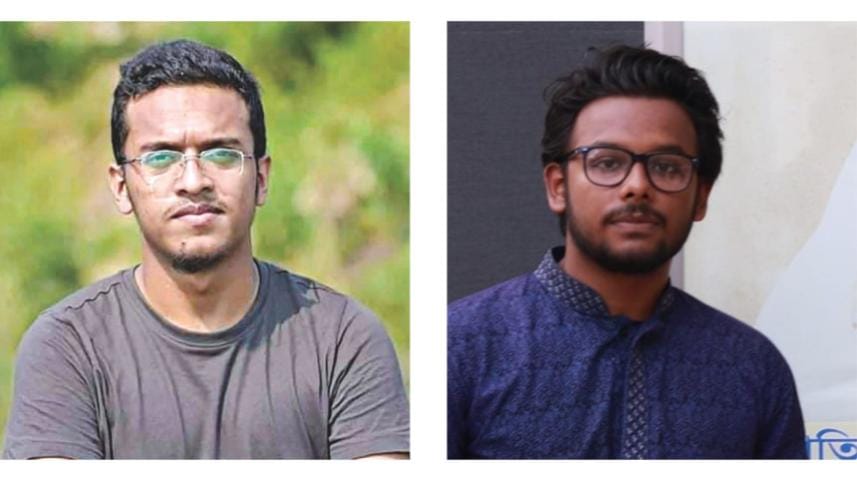How can a convicted killer escape?

I would love to tell you that I was surprised. That I gasped in horror when I read the news. That I clutched my imaginary pearls and whispered, "Oh dear, how could this have happened?" But alas, I am a Bangladeshi. I read horrors in ink and paper every day. Here, law and order are just suggestions, and justice is an occasional guest appearance on this tragicomic reality-show we call governance.
Muntasir Al Jemy, one of the men sentenced to death for the brutal murder of Bangladesh University of Engineering and Technology (BUET) student Abrar Fahad, escaped from Kashimpur Central Jail on August 6 last year. Yes, you read that correctly. Last year. Not yesterday. Not last week.
And the authorities—those fine, upstanding guardians of justice—decided to keep this little detail to themselves for a neat six months.
Why, you ask? Oh, the usual reasons—bureaucratic inefficiency, incompetence, and, most likely, a cocktail of corruption and apathy. But let's give them the benefit of the doubt. Maybe they were too busy doing—oh, I don't know—absolutely nothing to bring Abrar's murderers to real justice. Maybe they were taking an extended nap, rocked gently to sleep by the lullaby of impunity that has become the theme song of our criminal justice system.
It wasn't until Jemy's lawyer failed to show up in court that anyone thought to wonder, "Hey, where is this guy, anyway?" Imagine that—a convicted killer disappears, and the only reason it comes to light is because his legal team ghosted a hearing. I can't decide whether this is a crime thriller or a bad sitcom.
Let's be clear, Jemy was in a condemned cell. That means maximum security. That means he was supposed to be under constant watch. That means there were protocols in place—except, apparently, in Kashimpur, where the only protocol is "Oops, my bad." The official excuse? A jailbreak involving 209 prisoners. That's right—over two hundred criminals waltzed out of prison like it was an Eid sale at Bashundhara City.
But here's the kicker: it's not even the escape itself that enrages me the most. It's the duplicity. The deliberate silence. The casual, callous disregard for Abrar's family, who had to find out, six months later, that their son's murderer is out there, free as a bird. And for what? To avoid embarrassment? To sweep yet another failure under the rug?
And what does this tell us about the "efforts" to recapture Jemy? Exactly what Faiyaz, Abrar's younger brother, pointed out—there weren't any. Because if there had been, we would have heard about it. There would have been press conferences, wanted posters, manhunts. Instead, there was silence, because the authorities knew that if they didn't say anything, they wouldn't have to do anything.
This isn't just about one escaped convict. This is about the rot at the heart of our justice system. This is about the fact that our prisons are about as secure as a leaky tin roof during monsoon. This is about the fact that our government, our institutions, and the very people who are supposed to uphold justice, seem to be in a committed relationship with impunity.
And while they get away with it, families like Abrar's are left to suffer. Left to wake up every day knowing that the very system that promised justice is the same one that lets it slip through the cracks—no, scratch that—march out the front door.
If the authorities have even an ounce of shame left, they need to do two things immediately. First, find Jemy. And second, explain—truthfully, transparently—why they hid this from the public for so long. And if they can't do either, they should at least have the decency to admit that they are unfit for their jobs and resign.
But then again, accountability isn't really a thing here, is it?
Barrister Noshin Nawal is an activist, feminist, and a columnist for The Daily Star. She can be reached at nawalnoshin1@gmail.com.
Views expressed in this article are the author's own.
Follow The Daily Star Opinion on Facebook for the latest opinions, commentaries, and analyses by experts and professionals. To contribute your article or letter to The Daily Star Opinion, see our guidelines for submission.




 For all latest news, follow The Daily Star's Google News channel.
For all latest news, follow The Daily Star's Google News channel.
Comments